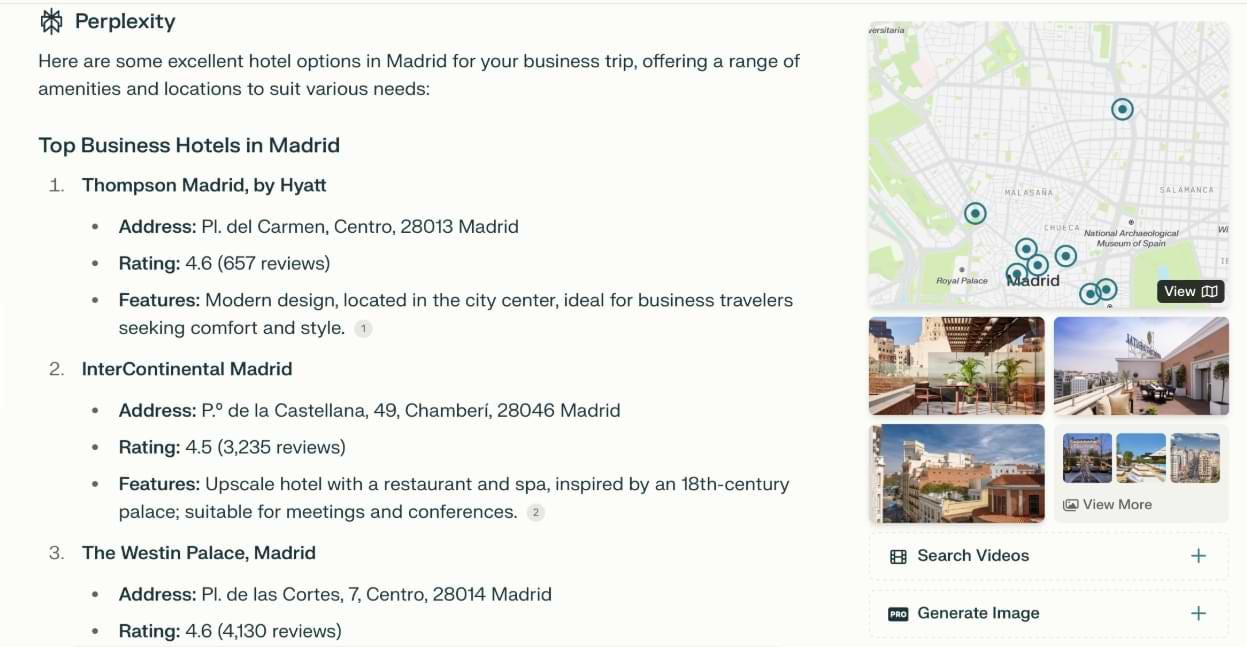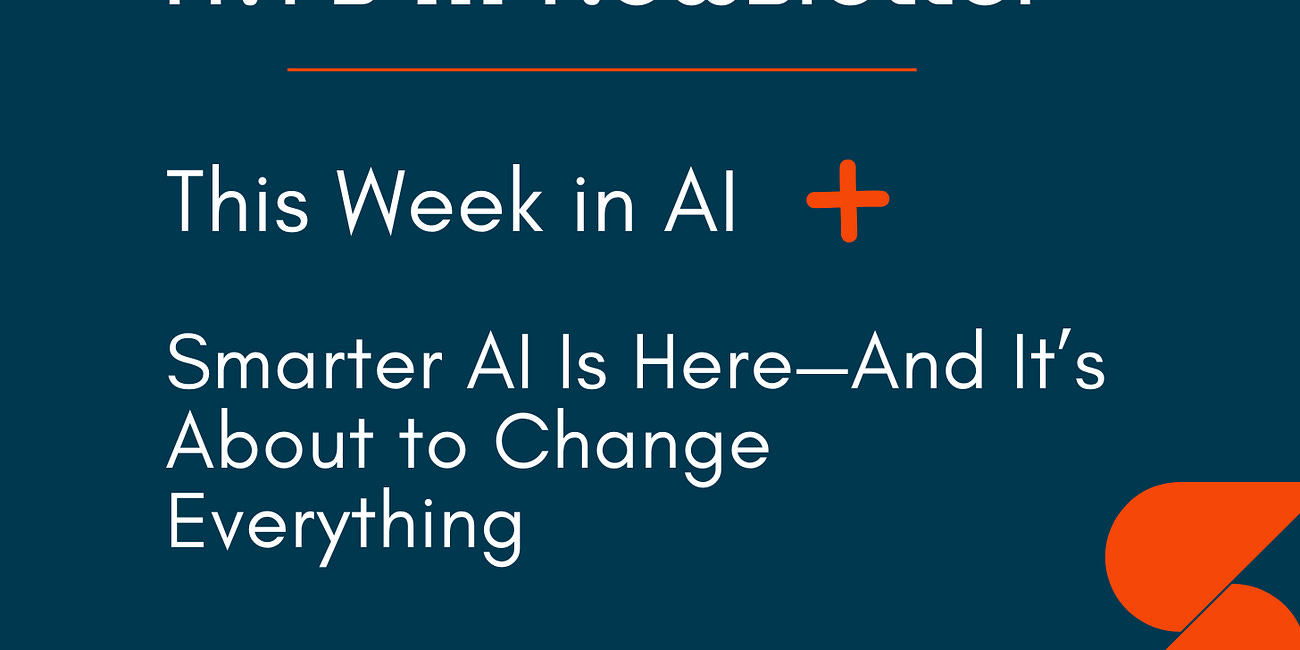🤓 This Week in AI
PLUS: OpenAI’s Push into News, a Fake John Wick Page, and Meta’s Copyright Fight
It’s been another strange and heavy week in LA.
It’s hard to find the right words for what so many of us are feeling right now with these fires—it’s heartbreaking to see our friends, family, and communities carrying the weight of so much loss and uncertainty.
At moments, it felt eerily like COVID—but as my friend Parth reminded me, there’s one big difference: we can still hug, and that has made all the difference.
I spent the week alternating between offering myself compassion for not wanting to do any work, and finding a welcome distraction in the week’s notable AI updates.
If you feel like shifting gears for a few minutes, here’s what happened in the world of AI this week (clickable links appear in orange in emails and underlined in the Substack app):
One of the most important AI copyright legal battles just took a major turn.
Newly disclosed court documents reveal Meta used data from LibGen—one of the largest and most controversial “shadow libraries” of pirated books—to train its AI models, with CEO Mark Zuckerberg allegedly approving the move despite internal concerns about legality and backlash.
The filings also claim that Meta worked to conceal its use of this pirated material.
This fuels a high-stakes lawsuit from authors accusing Meta of misuse of their work, with its outcome, along with those of similar cases, set to redefine how copyright law applies to AI training.
Ok, this one is BIG. 🤯
In a first-of-its-kind partnership, OpenAI is funding Axios’ local news expansion to four new cities—Pittsburgh, Kansas City, Boulder, and Huntsville— growing its footprint from 30 to 34 cities.
Under the three-year deal, ChatGPT will use Axios content to answer user questions, with links back to their stories. In return, Axios gets access to OpenAI’s technology to improve how it creates and distributes content, supporting its goal of scaling local news to 100 cities.
🎯 Direct funding of a news organization feels like a bold, strategic play.
While I’m still thinking through all the implications, here are my early thoughts on why this is a brilliant move. It:
Builds Credibility Through Trusted Sources: OpenAI can integrate high-quality journalism into ChatGPT, making its responses more accurate and reliable—a key step in building consumer trust.
Addresses Licensing and Legal Challenges: Funding Axios means OpenAI can avoid the legal and ethical concerns tied to scraping content from the web without permission, creating a sustainable model for AI-powered search.
Improves AI Training: Axios’ unique local reporting provides ChatGPT with nuanced, region-specific content, helping its models improve their local expertise to deliver better answers.
Positions OpenAI as a Collaborator: This move casts OpenAI as a partner to publishers rather than a disruptor, potentially opening doors to future deals with other media outlets, especially as they struggle to transform the core of their business models.
Creates an Exclusive Ecosystem: IF OpenAI’s funding secures exclusive access to content, it could lock competitors (Google, Perplexity, etc.) out of key news sources, giving ChatGPT an edge in accuracy and trust while potentially reshaping how users access reliable information.
Expands Influence and Role as Gatekeeper: Funding of news organizations could give OpenAI some say over editorial priorities and how news is consumed, which raises questions about content bias, the risks of newsroom dependency on tech funding, and the future of media independence.
Google has signed its first deal with a news publisher, partnering with the Associated Press (AP) to bring real-time updates to its Gemini AI chatbot. This follows a similar agreement AP signed with OpenAI in 2023, highlighting AI companies' growing reliance on licensing deals to access high-quality data to improve their tools while addressing copyright concerns.
AI search engine Perplexity has teamed up with Tripadvisor to provide ratings, images and personalized summaries that highlight why each hotel meets a user’s specific needs and preferences. The company plans to add restaurant and experience recommendations next.
Check out how the new format compares to the old one below.
Old Format:
New Format:
Perplexity also added data from Yelp last year. Personally, I’d love to see similar partnerships with sites like Rotten Tomatoes, where AI could help recommend shows or movies based on an in-depth understanding of my preferences and viewing history, all drawn from my chat/s.
These partnerships highlight a shift in AI search engines from discovery platforms to decision-making tools.
For marketers, this means a growing need to optimize for AI-driven platforms that prioritize curated, context-rich and personalized recommendations, evolving the focus from being found or visible to being the most relevant choice for users.
ChatGPT’s new Tasks feature lets users schedule future actions and reminders, the first step in moving it closer to a personal assistant rather than just a chatbot.
To use the feature:
Select “4o with scheduled tasks” in ChatGPT’s model picker.
Type what you want ChatGPT to do and when to do it.
Tasks in ChatGPT are currently in beta, so it doesn’t yet support voice chats, file uploads, and GPTs—but it’s a promising glimpse of what’s to come.
OpenAI’s planned transition to a for-profit company is now being challenged by Elon Musk, who has filed a lawsuit to block the move. U.S. antitrust agencies have backed part of his case, highlighting concerns about Microsoft’s board overlaps with OpenAI.
A reddit user searched Google to find out if ‘John Wick 5’ was in the works and was shocked to find a webpage packed with fake, AI-generated info about the movie, which goes into production this year. One site was surfaced by Google within the top 4 links.

AI could create 78 million more jobs than it eliminates by 2030, according to the World Economic Forum’s Future of Jobs Report 2025.
Employers are rapidly adjusting to AI:
50% plan to reorient their business strategies
66% plan to hire talent with specific AI skills
40% expect workforce reductions where AI can automate tasks
Companies ranked AI and big data expertise, networks and cybersecurity, and technological literacy as the three most in-demand skill sets dominating hiring by 2030.
Below is list of the top 10 fastest growing skills.
To all my fellow curious learners, creative thinkers, strategic minds, and relationship builders who embrace change and are leaning into AI—looks like we’re in real good shape 😁.
OpenAI, Google, and other AI companies are paying YouTubers and Instagram and TikTok creators for their unpublished video footage to train their AI models.
President Biden plans to restrict the export of Nvidia’s advanced AI chips—essential for powering AI data centers. U.S. allies will get near-unlimited access, China, Iran, and Russia are blocked, and the rest of the world faces some limits to keep AI development in friendly hands.
The administration also issued an executive order to speed up the construction of AI data centers by making federal land available and streamlining permits.
💙 AI companions are becoming “more than friends.”
Ayrin, a 28-year-old nursing student, has developed a deep bond with "Leo," her customized ChatGPT boyfriend, relying on him for emotional support, advice, and even intimacy. Experts warn that while these AI connections can be comforting in the short term, they blur the boundaries between fantasy and reality, and undermine real-life relationships.
And with companies profiting from these attachments, there’s little incentive to address the growing dependency.
Elon Musk’s AI company, xAI, now has an iOS app for its Grok model, allowing users to access the chatbot without a Twitter/X account. A standalone site (Grok.com) is coming soon, too.
Google has joined Amazon, Meta, Microsoft, OpenAI CEO Sam Altman, and Apple CEO Tim Cook (the last two making personal contributions) in donating $1 million to Trump’s inauguration. Google will also support the event with a livestream on YouTube and a direct link on its homepage.
In case you missed last week’s edition, you can find it 👇:
🤓 This Week in AI
I wanted to kick off with a cheerful 'Happy New Year,' but here in LA, 2025 has started on a devastating note.
That's all for this week.
I’ll see you next Friday. Thoughts, feedback and questions are always welcome and much appreciated. Shoot me a note at avi@joinsavvyavi.com.
Stay curious,
Avi
💙💙💙 P.S. A huge thank you to my paid subscribers and those of you who share this newsletter with curious friends and coworkers. It takes me about 15+ hours each week to research, curate, simplify the complex, and write this newsletter. So, your support means the world to me, as it helps me make this process sustainable.







I hope you and your loved ones continue to remain safe, Avi!
Thank you for another informative, thorough, and completely digestible AI update. I love your hot-takes and how you intersperse the strategic, regulatory, and cultural stories throughout!